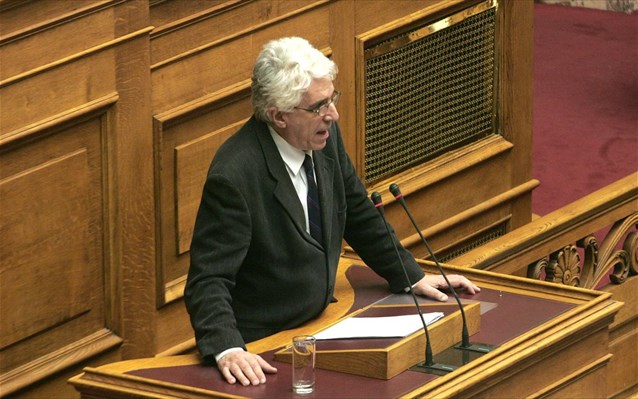Photo: kathimerini.gr
Greece will do everything possible to require Germany to pay its obligations due from the time of the Nazi occupation, as stated by Prime Minister Alexis Tsipras in a speech in parliament, which indirectly but clearly, associated the issue with the ongoing talks in Europe on solving the financial problem of Greece.
"I want to assure you that the Greek government will work hard and on equal terms to find a solution to the complex problems facing Europe through a dialogue and within the context of sincere negotiations. It will work to fulfil all its commitments. But at the same time, it will work for the fulfilment of all outstanding obligations to Greece and the Greek people. We are committed to meet our obligations but all other countries must do the same," Tsipras said in his speech at the plenum of the Greek parliament. The topic of the meeting was the resumption of the commission to request the obligations of Germany on the proposal of President of Parliament Zoe Konstantopoulou.
Tsipras was adamant that "morality cannot be applied selectively," adding, "Faced with the moralizing tone that has prevailed in the public debate in Europe in recent years, we do not choose the position of the student who bows down to the haughty moral teaching, nor do we want to be in the position of moralists who reproachfully shake their finger at the alleged sinner, urging him to pay for his sins. We do not teach lessons in morality but do not accept being taught moral lessons either."
Particularly impressive was the following quote referred to by Tsipras, "Lately, when I listen to the challenging statements by foreign countries, the famous phrase from the speech of Jesus comes to my mind "You see the speck in your brother's eye but not the log in your own eye."
The Greek Prime Minister directly referred to Germany too, describing the course of developments for it after World War II, "Despite the crimes of the Third Reich, Germany was favoured, and rightly, through a number of actions. The most important among them were writing off part of its debt from World War II under the London Agreement in 1953 and, of course, the huge amounts that the Allies had provided for its recovery."
The subsequent statements by Minister of Justice Nikos Paraskevopoulos are to further increase the tension in the relations between Athens and Berlin, which are strained anyway. He said he was ready to sign the execution order for the decision on the payment of compensation to the relatives of the victims of Nazi forces from the village of Distomo that the Supreme Court had made in the year 2000. It confirmed as final the decision of the multi-membered regional court in Livadia in 1997, which was in favour of compensations to the amount of 28 million euro.

The decision in question provides for measures such as confiscation of German assets in Greece. "I think the order should be issued and I am ready to do so," the Minister said, adding, "In order to implement the decision of the Supreme Court, the law provides for the Minister to issue an order to assess the issues relating to the international relations of the country in the event that the implementation of the decision affects the interests of other countries."
Paraskevopoulos said he did not agree with the arguments of the previous justice ministers who refused to issue the specific order and acknowledged the existence of legal obstacles to its implementation.
According to the Greek media, if the Minister of Justice issued the order, it would be possible to confiscate the building that houses the Goethe Institute.
Deputy Minister of Defence Kostas Isichos continued the Greek cabinet offensive against Germany by informing the plenum of parliament that the institution had an archive of documents proving the criminal acts of the Nazis in Greece.
According to him, it contains "400,000 pages of notebooks of German occupiers, full of valuable data", and the documents, which have arrived in Athens from the US, have recently been added to the historical archives of the Greek army.
In his words, they describe clandestine archaeological excavations, drilling, utilization of deposits of precious metals on Greek territory, destruction and desecration of historical monuments as well as destruction of airports, ports, roads, bridges and houses.
Earlier, Interior Minister of Austria Johanna Mikl-Leitner responded to the threats from Panos Kammenos that he would allow illegal immigrants to leave freely to Western Europe by saying, "This is inconceivable and inhuman excesses which actually nobody can take seriously. It is time for the Greek government to begin to appear in the headlines with decisions, not with insane threats."
"If any of the Greek rulers considers this a serious threat, the rules of the European Union are clear. These refugees will automatically be returned to Greece, and then we can raise borders, which we will do," she warned explicitly.